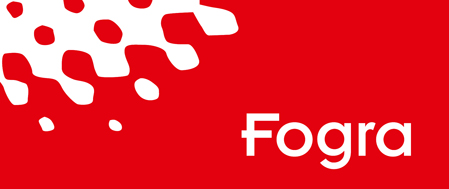NEWS
Iropa is Boosting its Environmental Strategy with Kodak Sonora XP Process Free Plates
Innovation and the environment – these are the two main elements of a successful industrial strategy that has worked well for Normandy-based printer Iropa. The company was an early adopter of Kodak Sonora XP Process Free Plates, and it is now in a position to take stock – the plates can be imaged 54% faster and they last 25% longer on the press than the previous plates.
Iropa’s workforce of 58 is fully committed to a voluntary environmental approach the company recycles its water and sorts all its waste, from coffee cups to empty ink containers. Based in Saint-Etienne du Rouvray, close to Rouen, Iropa is a sheet offset printer with an EUR 7.5 million turnover, specializing in commercial printing. Its client base includes local organizations (regional authorities, regional tourist boards, etc.) as well as major Parisian accounts such as banks and publishing companies. It has eight offset presses for formats of up to 70 x 102 mm (27.55 inches x 40.15 inches), in addition to one Kodak Nexpress Digital Production Color Press. Iropa has been working with Kodak since 2007, and its prepress department boasts two Kodak Thermal CTP Systems – the Kodak Trendsetter Q800 Platesetter and the Kodak Magnus Q800 Platesetter – controlled by Kodak Prinergy Workflow System.
The environment comes first
“We’ve always been committed to environmental issues,” says Laurent Crevel, CEO of Iropa. “We were the first printer in Normandy to be awarded the Imprim’vert label in 2004. We were also the first industrial facility in France to achieve HQE certification, which covers all sectors. That was in 2010.” According to Laurent Crevel, Iropa’s CEO, the Kodak Sonora XP Plateis the first non process solution that can be used for production on an industrial scale. So it is easy to understand why the company is so interested in process freeplates. “We started using Kodak Thermal Direct Non Process Platesin 2010,” says Laurent Crevel. “There’s no need for rinsing water and there’s no chemical waste (developer, fixer, etc.), so non process CTP fits in perfectly with our philosophy. In terms of rinsing water alone, non process CTP means we save 375,000 litres of water per year. As for recycling the chemical waste from CTP – this is something we simply don’t haveto worry about any more.”
Kodak Sonora XP Process Free Plates – faster, more robust
Iropa has been acting as a pilot site for Kodak Sonora XP Plates since early 2012. Sonora XP Plates are designed for commercial printers of all sizes as well as major publishers. They use non ablative writing technology for exceptional performance in terms of writing speed and the contrast of the latent image. The system’s easy operation helps to increase user productivity. As Laurent Crevel, CEO of Iropa confirms: “Switching to the Sonora XP Plates was easy for us. Cleaning out the plate on the press is noticeably faster. It used to take around 15 sheets before a legible image would appear on the plate. With the Sonora XP Plates, the image on the plate is visible from the first sheet. This allows us to reduce makeready time and materials.” But the benefits do not stop there. “Sonora XP Plates can be imaged much faster,” continues Laurent Crevel. “We have been able to increase production from 26 plates per hour to 40 plates per hour on our CTP systems.” The operators in the prepress department are not alone in praising Sonora XP Plates. The offset press operators also like them because they last longer on the press.
An industrial solution
The company now uses Kodak Sonora XP Plates for its entire plate production, equivalent to 18,000 to 20,000 m² (193,750 to 215,278 square feet) per year. “We only have good things to say about Kodak Sonora XP Plates,” confirms Laurent Crevel. “Their robustness and productivity really make them an industrial solution for us.” With this in mind, Laurent Crevel is already looking to the future. Iropa wasan early adopter of Sonora XP Plates, and was also one of the first users of non process plates to stop using isopropyl alcohol as a wetting agent. It is now among the first printers to move to hybrid UV offset, having taken delivery of an HUV press in October 2013, which will work with Kodak Sonora XP Plates. "We’re the first printer in Europe to do this,” says Laurent Crevel. “It is an innovation that opens doors to new applications like printing on non absorbent substrates including plastic-based papers. We’re also going to create high gloss varnishes.”
Asked whether the systematic use of ecological solutions has a negative impact on competitiveness, Laurent Crevel’s answer is based on experience: “Our environmental commitment has never put us at a financial disadvantage. It has never held us back in terms of our competitiveness. Our customers are familiar with our approach and they appreciate it. It is one of the ways we stand out from the rest. We are steadily increasing our market share even in these difficult times,” he says. Food for thought... Olivier Claude, General Manager for Print & Vice President Commercial Business EAMER, Kodak adds “As Sonora XP Plates remove the environmental impact of chemistry, water and electricity usage of processing, they are being readily adopted worldwide because of their sustainability advantages. And the ecological gains complement the cost advantages delivered too.”








